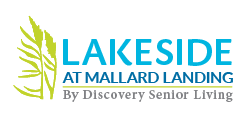As the elderly age, they tend to develop more health issues that require medications to manage. However, taking too many medications or taking them incorrectly can lead to overmedication, which can have serious health consequences. In this article, we will discuss the signs of overmedication in the elderly and what can be done to prevent it.
What is Overmedication in Older Adults?
Overmedication is the use of too many medications or taking medications in higher doses or more frequently than prescribed. This can happen when older adults have multiple health conditions that require different medications or when they see multiple doctors who may not be aware of all the medications the patient is taking.
Overmedication can also occur when older adults take medication without understanding the dosage or side effects. Overmedication can lead to adverse reactions, drug interactions, and even hospitalization. Older adults are particularly vulnerable to overmedication because they often have more health issues and take more medications than younger people.
Signs of Overmedication in Older Adults
- Confusion and Memory Loss
One of the most common signs of overmedication in older adults is confusion or memory loss. Older adults who are taking too many medications or taking them incorrectly may have trouble remembering things or be easily disoriented.
- Fatigue and Weakness
Older adults who are overmedicated may experience fatigue and weakness. This can be due to the medication’s side effects or the medication’s impact on the body’s natural systems.
- Changes in Mood
Overmedication can also lead to changes in mood. Older adults may become irritable, anxious, or depressed due to the medication’s impact on their brain chemistry.
- Poor Coordination
Older adults who are overmedicated may have poor coordination, making it difficult to perform daily activities such as walking or getting dressed.
- Decreased Appetite
Overmedication can also lead to a decreased appetite. Older adults who are overmedicated may feel nauseous or experience other digestive issues that make it difficult to eat.
Preventing Overmedication in Older Adults
- Keep a Medication List
Older adults or their caregivers should keep a list of all the medications they are taking, including dosage and frequency. This list should be updated regularly and shared with all healthcare providers.
- Communicate with Healthcare Providers
Older adults should communicate with all their healthcare providers, including doctors, nurses, and pharmacists, about all the medications they are taking. This will help prevent drug interactions and ensure that everyone is aware of any potential side effects.
- Use One Pharmacy
Using one pharmacy can help prevent overmedication by allowing the pharmacist to review all the medications an elderly is taking and check for any potential drug interactions.
- Review Medications Regularly
Older adults should have their medications reviewed regularly by their healthcare providers to ensure that they are still necessary and being taken correctly.
- Educate Yourself
Older adults and their caregivers should educate themselves about the medications they are taking, including their side effects and potential drug interactions. This will help them recognize any potential signs of overmedication and communicate with their healthcare providers effectively.
Learn to Prevent Overmedication
Overmedication in older adults is a serious issue that can lead to adverse health consequences. It is essential to recognize the signs of overmedication in older adults and take steps to prevent it. By keeping a medication list, communicating with healthcare providers, using one pharmacy, reviewing medications regularly, and educating themselves, older adults and their caregivers can help prevent overmedication and ensure that medications are used safely and effectively.







